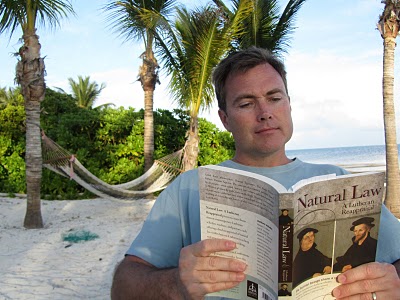The Natural Law of the Family
By Ryan C. MacPherson, Ph.D.
Chapter 11 in Natural Law: A Lutheran Reappraisal, edited by Robert C. Baker (St. Louis: Concordia Publishing House, 2011), 201-19.
Abstract:

This chapter offers a definition of “natural law” and a demonstration that a fundamental unit of the created order, as governed by natural law, is the “natural family”— namely, the lifelong union of one man and one woman, together with their children. From this premise, the chapter proceeds to argue for an inherently familial identity of human personhood, in contrast to the now-prevalent political philosophies of laissez faire individualism and egalitarian statism. Ironically, the two extremes of individualism and statism hold more in common with each other than either of them shares with the natural family; the privileging of individualism and statism in recent centuries has, in fact, culminated in no-fault divorce and same-sex “marriage,” two social inventions that severely violate the natural law of the family. A humane social order requires, therefore, that both philosophies yield to a recognition that human nature mysteriously transcends their assumptions for it, and that nowhere but the natural family can the radical inequalities inherent in human nature be channeled more efficiently toward liberty, justice, and prosperity. Indeed, even the church’s contributions to human flourishing on this earth proceed by sanctifying people as renewed creations in Christ Jesus, thereby fulfilling the natural law.
Pictured Right: A Michigan dentist reads Natural Law: A Lutheran Reappraisal while enjoying a winter getaway in Florida.
Radio Interview:
Available:
Follow Natural Law: A Lutheran Reappraisal on Facebook.

